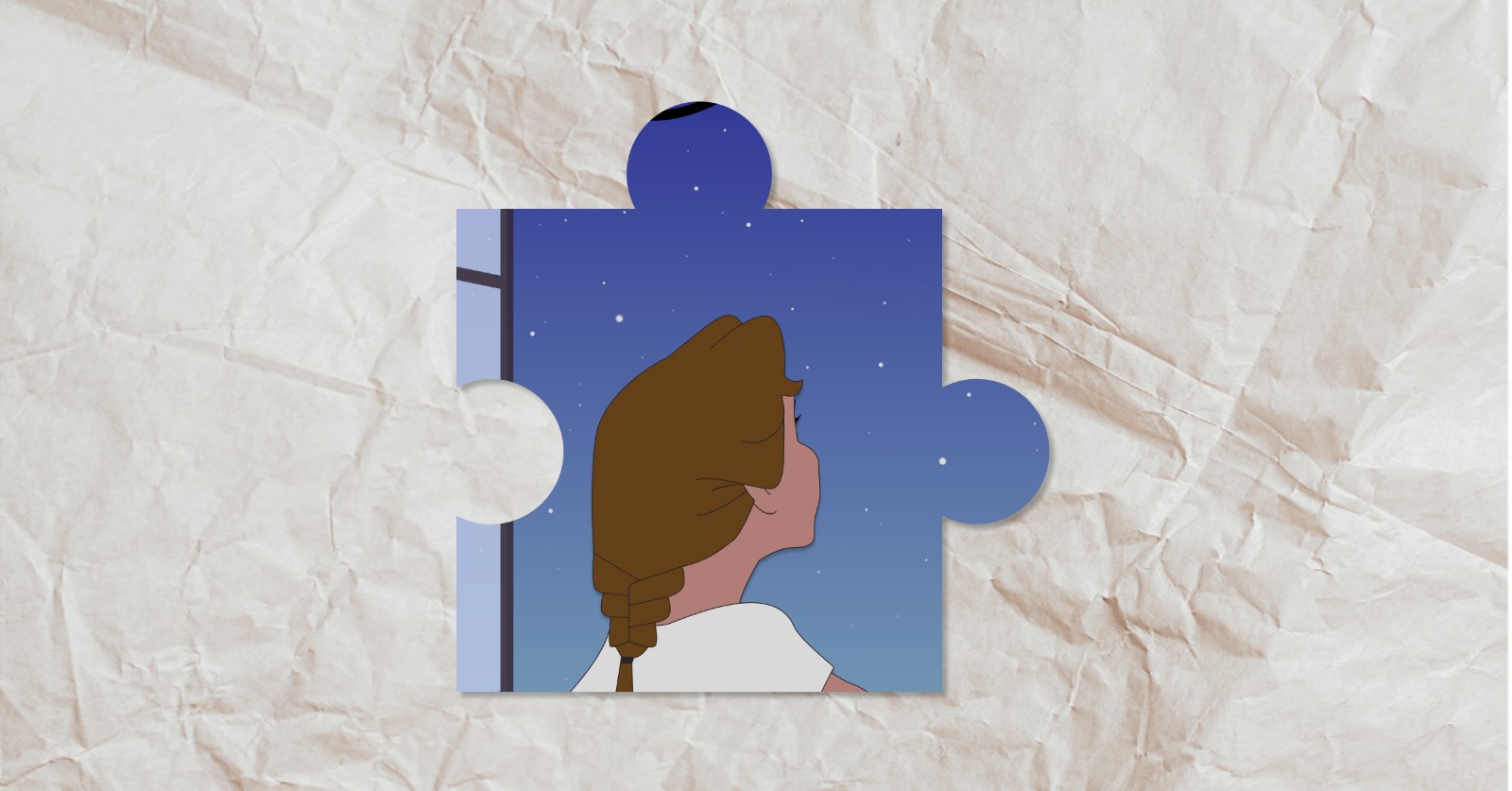How many times were we asked as children what we wanted to be when we grew up? Countless, I believe. Those very dreams often became the reason to joke with friends about who wanted the weirdest job, but also the reason why some of us developed our own interests and passions.
Thinking about the ice-breaking question of the interviews, I thought it would be nice for the women I spoke with to go back in time, return to their childhood, and reflect on how their dreams grew with them. Who asks us that question anymore, now that we’re all grown up—“What do you want to be when you grow up?” And perhaps the answer would be even more interesting if we asked it to ourselves today: What do I want to be when I grow up? Because, at the end of the day, we never stop growing, learning, and dreaming.
What came out of these conversations often made me smile. Some answers were unexpected; others made me reflect on how life, for better or worse, often doesn’t go as we planned, and for that reason the childhood dream we once had may take an entirely different direction.
Giulia wanted to be a ballerina—admit it, how many of you also wanted to be one?—but as she grew, her interests changed, and she realized the discipline of that art wasn’t for her.
Chiara, on the other hand, wanted to be a doctor, though she doesn’t really know why—and that really made me smile. Then came her revelation: after reading Little Women, she decided she wanted to be a writer, just like Jo March. Even if today she isn’t exactly a writer, her passion for reading and writing has been the thread running through her life, bringing her to do “what I liked doing, which also happens to be what I’m best at.”
Then there are women like Giulia, who wanted to be a hairdresser or beautician, because even as a child she loved styling her dolls’ hair, making updos, and putting makeup on them. Life went differently for her, too—she had a family and, in the meantime, discovered other passions that give her great satisfaction (she’s amazing at crochet and creates spectacular pieces!).
What reassured me after asking this question was hearing that, despite difficulties in reaching their dream—or not achieving it at all—these women were happy with how their lives had unfolded, knowing that their dreams and desires could still change. I believe that’s part of the beauty of living: our destiny is not fixed. Dreams grow and change with us. It’s up to us to give them meaning, purpose, to adapt them, or to change them completely when needed. And of course, there is beauty in working hard, with passion and determination, to try and achieve them.
You might think what I’m writing is obvious, but I’ve been the first to doubt it. How many times have we thought our dreams or desires were truly ours, when in fact they were dictated by others? How many times have we changed direction without really listening to ourselves? And here lies the complexity of every human life. The relationships we have often influence us, and whether we like it or not, they also shape our dreams.
To some of the women I asked another question: “Would you still like to try and make that dream come true one day?” Some told me that priorities change in life, and sometimes dreams must be set aside to move forward. Others, however, showed me their strength and determination in pursuing those dreams, even by finding alternative paths that allowed them to be realized in part—or to transform completely. Not achieving your dream doesn’t necessarily mean being unhappy. Quite the opposite. Because dreams, like life itself, are in constant transformation, and we’ll always find ways to be happy. The real risk is regretting what we never tried to do.
Many of them also briefly shared their stories, and it was wonderful to hear how their dreams evolved over time.
For example, Angela wanted to be a teacher, so much so that she used her younger sister as a guinea pig for her lessons. Later, though, she decided to enroll in accounting, realizing that “teachers need to know how to draw, be creative, and those were two qualities I, unfortunately, didn’t have,” so she left that dream in the drawer. At 19, she moved from Abruzzo to Veneto, where “my whole personal story as a woman, wife, and mother began.” That life gave her the chance to reopen that drawer, at least partly: after a period working in her brother’s company, she was hired at a preschool as an administrative and HR manager. She wasn’t often in direct contact with the children, but working in that environment brought her childhood dream back to life.
Veronica, instead, wanted to be an ethologist—I’ll admit, I didn’t even know this word myself—someone who studies animal behavior. She especially wanted to study puppies. In high school she attended a biology program, then began studying biology at university. But after a year, she realized biology wasn’t for her. Meanwhile, she had started working at a swimming pool as a lifeguard, and from there decided to enroll in sports science. Through her studies, she became interested in childhood, particularly children with ADHD, which led her to relational psychomotricity: “Basically, I thought I wanted to help these children, and what I ended up doing was still studying the behavior of puppies—even if they were human ones.”
It was fascinating to see how dreams changed from one generation to the next, and to hear about the different opportunities women had then and have today.
Anna, a high school senior, introduced her answer by saying: “Now I’ve entered the mindset of thinking about what I want to do when I grow up.” That made me smile a lot, because I saw myself at the end of high school, when I had no idea what I wanted to do in life—not that I have many more certainties now. But she seemed very determined: she wants to become a psycho-oncologist. “My initial idea was always that I wanted to help people, but I could never figure out how I could do it. […] I really love the thought that maybe I can help someone—even the parents of children who are diagnosed with tumors. I think that’s very interesting and very beautiful.” Seeing dreams sprouting and beginning to grow was one of the most precious gifts these interviews gave me.
Emily, instead, wanted to be a vet because she loved animals. Now that her interests have shifted, she wants to work in social media, particularly marketing. And then there’s Samia, who wanted to be a pediatrician because she adored her own doctor, who gave her stickers. And once again, life evolves: today she works as an editor for South Tyrol’s street newspaper.
Who knows what else these young women will dream of in the future.
With the older women I interviewed, I had to do the difficult work of understanding and putting myself in their shoes, because it’s clear their dreams were shaped by social, historical, and cultural conditions very different from ours. I was often misled by trying to figure out why they hadn’t wanted “more” from life, but then I realized I needed to let go of this prejudice. Because in telling their stories, they made it clear that they were happy with the lives they had—and that, despite difficulties, they had realized their dreams. And I believe that’s the only thing that really matters. We cannot decide whether someone’s dream is right or wrong: each of us builds our own, tailored to our desires, needs, and passions.
Daniela’s answer made me smile: “When I grew up, I wanted to be a mom. A mom, yes—but not a housewife.” Staying home all day just wasn’t for her. Yet sometimes we’re forced to do what we don’t like: for a period, she had to stay home with her children. While she was happy to be a mother, those years as a housewife weighed on her. But it was just a phase of her life, which didn’t stop her from working later on and fulfilling “what I had set for myself when I was young, because I had children and still managed to work.”
And last, but certainly not least, Maria Pia—my grandmother. She surprised me at first by saying she had never really worried about what she wanted to be when she grew up. She was born in the 1940s, a time when it was rare for girls to even finish elementary school, and that clearly shaped the opportunities women had to pursue their dreams. She also grew up in a small town in Veneto, where options were few: either you worked in a factory, or you married and became a housewife. It’s staggering to think about how different things are today: we now have the privilege of choosing what we want to do with our lives. A privilege that can be a double-edged sword: on the one hand, we can try many paths to reach our goals; on the other, we have so many options we don’t know where to start. We must carve our way through a world overflowing with stimuli and opportunities to find our path.
I didn’t know much about my grandmother’s story, and I was surprised to discover she worked for nine years in a factory in Castelfranco Veneto before marrying my grandfather and having three children. “With your grandfather, we made a choice: once we married, since we hoped for a family, it was important for us that I became a mother. That was my choice.” Work never attracted her much, partly because the factories of those years weren’t great places to work, so she chose to dedicate her energy to building a family and raising her children.
It was moving to hear these women’s dreams, to listen to their stories, to see their faces smile, get emotional, even get angry sometimes. It was beautiful to feel the satisfaction of those who had achieved certain dreams, and the freshness of those still germinating. On the other hand, I sometimes felt frustrated hearing: “That’s how it went, but it’s fine anyway.” I didn’t hear resignation in that expression, but rather an awareness that life, even when it throws obstacles in our way, sometimes just goes how it has to go—and in those moments, all we can do is follow its flow.
Dreams and desires are part of what makes us human. Keeping an ear turned toward them, listening to what we truly long for, is what, in my opinion, allows us to understand what distracts us and, at the same time, keeps us tied to what truly matters to us.
And you—what did you want to be when you grew up?


Leave a Reply